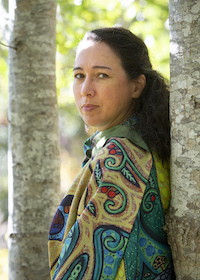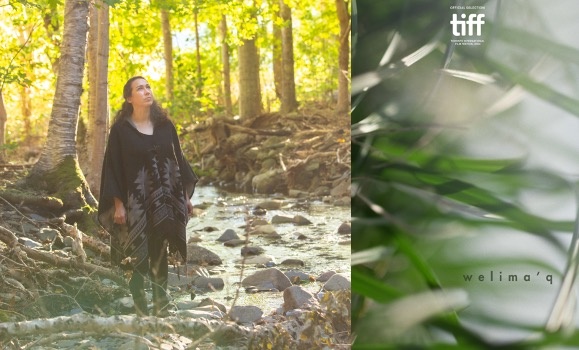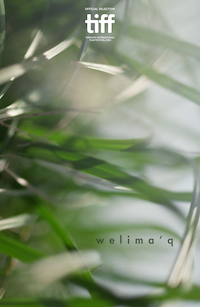 For more than two decades ¬Ý(pictured right), a L‚Äônu (Mi‚Äôkmaw) and European-descent storyteller, has worked in many different artistic media (including playwright, podcast producer, oral storyteller, actor, and cultural interpreter), but her short film ‚Äúwelima'q‚Äù is her first as a director and producer.
For more than two decades ¬Ý(pictured right), a L‚Äônu (Mi‚Äôkmaw) and European-descent storyteller, has worked in many different artistic media (including playwright, podcast producer, oral storyteller, actor, and cultural interpreter), but her short film ‚Äúwelima'q‚Äù is her first as a director and producer.
When she learned that it had been accepted into the (TIFF) for its world premiere, she says she felt a bit stunned and in disbelief.
“I think i defaulted to imposter feelings of, ‘Oh, this probably isn't the news i think it is,’” shalan says. “As the paperwork came in over the days i realized it was real, an honour, as well as a bit overwhelming at that point.”
People local to Halifax also have the opportunity to¬Ý¬Ýon September 15¬Ýat the Cineplex Cinemas Park Lane during the¬ÝÃ˝(¥°±ıπÛπÛ).
Related reading:
Shalan explains the word “welima'q” translates in English as "it smells good" and is the base of one of the Mi'kmaw words for sweetgrass. She describes the four-minute film as a poetic documentary inspired by the sweetgrass gathering she does each summer with her family, as well as a poem found in her most recent book of poetry.
A member and resident of the Bear River First Nation in Nova Scotia, shalan holds a Master of Environmental Studies (MES‚Äô17) from π˚Ω¥ ”∆µ and has been weaving ecological and cultural teachings into her arts, and vice versa, for many years. Now an Interdisciplinary PhD candidate and instructor of a land-based learning course in the Indigenous Studies program in the Faculty of Arts and Social Sciences, she says her work is absolutely linked to the way that she created this film.
“My research is about the Mi'kmaw language: how it describes the natural world, how i can learn more about ecosystems by reclaiming our language, and conversely how i can learn our Mi'kmaw language deeper by being on the land itself,” she says,. She adds that picking sweetgrass while saying the word "welima'q" is exactly how she and her Mi’kmaw language-learning partner and friend Rose Meuse (who is featured with her children in shalan’s film) go about their land-based language learning together.
“I was inspired to make this film, but also to do more language learning as scholarly research. The interdisciplinary program [in the Faculty of Graduate Studies] is right up my stream! I was able to combine departments [including Environmental Studies in the Faculty of Science and Indigenous Studies and English/Creative Writing in the Faculty of Arts and Social Sciences] to show the interrelatedness of Mi'kmaw language, land and multi-lingual storytelling.”
She adds that her method for storytelling changes per project she is inspired to create, from theatre to poetry, to music and more.
“This was the first time that i finished a short film and by taking it to festivals feels like a game-changer for me. These four minutes of green is one of my favourite projects in a long time.”
Editorial note: The use of lower case letters in shalan joudry’s name and the lower case of “i” are at shalan's request.
Now read:¬Ý
Alan Syliboy exhibition offers 50‑year retrospective on one of the region’s defining artists
Grad profile: Connecting storytelling, heritage and the environment


